Why It’s Too Early to Close the Case on the Bek Air Plane Crash
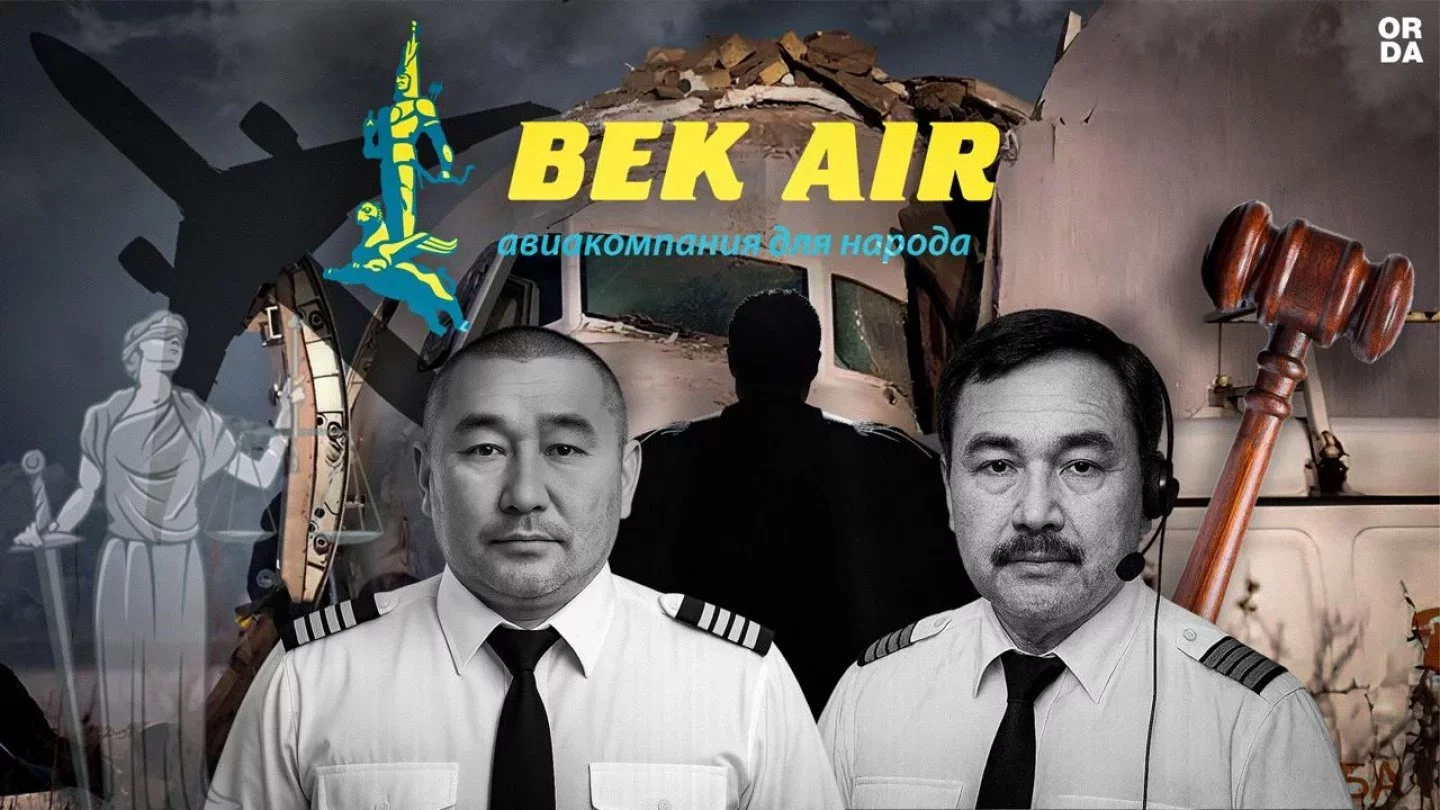 Photo: Orda.kz
Photo: Orda.kz
Last week in Almaty, a verdict was handed down in the case over the 2019 crash of a Fokker-100 passenger jet. The Turksib District Court found Bek Air pilots Marat Muratbayev and Mirzhan Muldakulov guilty under Part 3 of Article 344 of Kazakhstan’s Criminal Code (“Violation of safety rules for the operation of air transport resulting in the negligent death of two or more persons”).
Both men were exempted from punishment because they had died before the trial. Had they survived, the court said, they would have faced between four and ten years in prison, Orda.kz reports.
Many social-media users expressed dissatisfaction with the verdict, arguing that the pilots’ guilt had not been proven. They are calling for the case to be reviewed and for the true culprits of the tragedy to be identified.
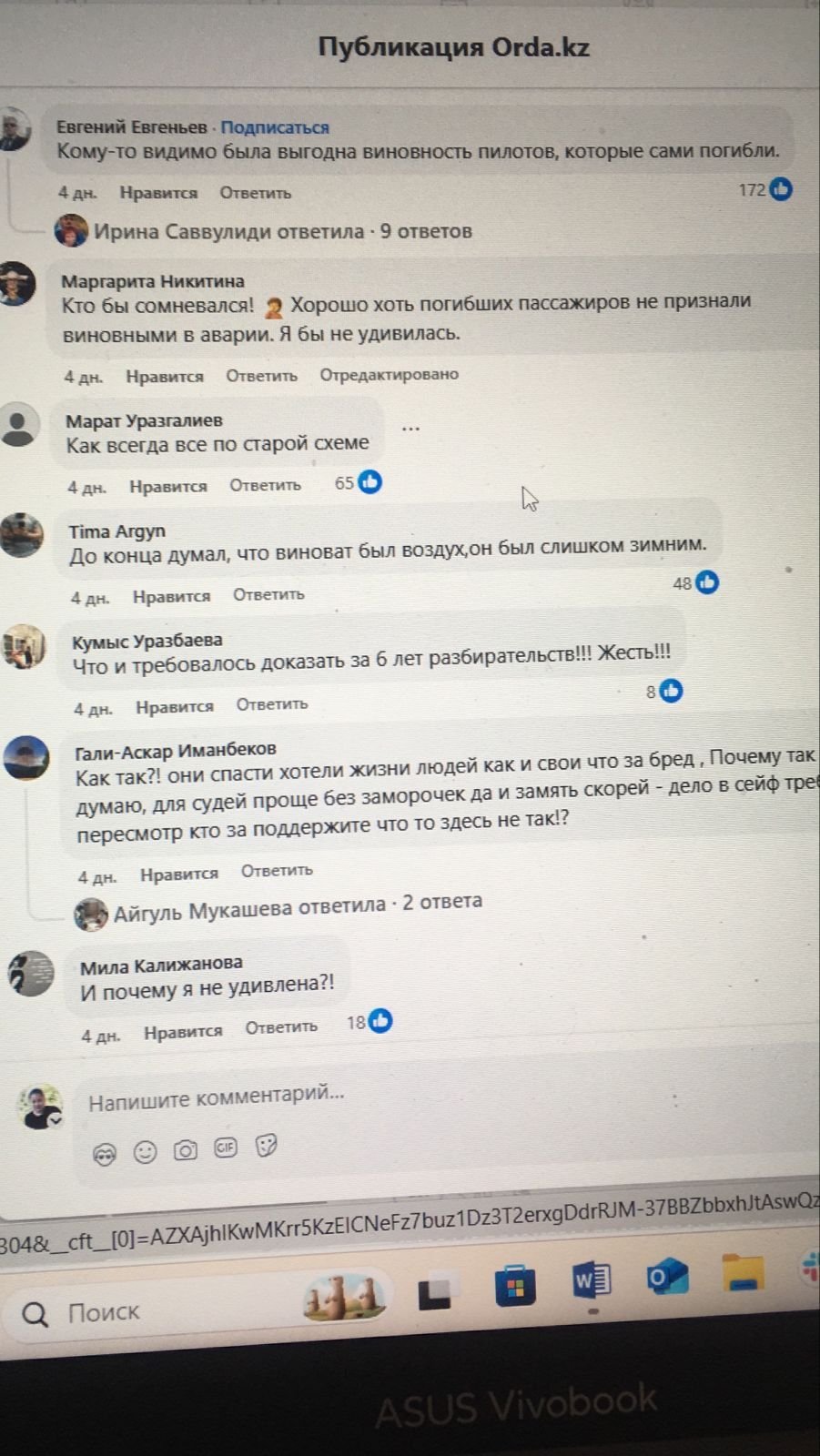
Our newsroom has no reason to doubt the professionalism, objectivity, or impartiality of the transport-police investigators and prosecutors who handled the case. We also respect the court’s decision — and the views of those who support it.
However, while the verdict has yet to enter into legal force, we will try to understand why it has drawn so much criticism online, and why the district judge ultimately sided with the prosecution.
In Search of The Truth
Let’s start with a reminder of how events unfolded. On the morning of December 27, 2019, a Bek Air Fokker-100 aircraft was scheduled to fly from Almaty to the capital. On board were 93 passengers and five crew members.
During takeoff, the plane suddenly lost control, overran the runway, broke through a fence, and crashed into a private house.
Thirteen people were killed, including the captain, Marat Muratbayev. The co-pilot, Mirzhan Muldakulov, died a month later at home from a pulmonary embolism. Fifty-three passengers sustained various injuries.
A special government commission concluded that the crash was caused by ice buildup on the wings. Investigators from the Almaty Transport Police Department examined several possible versions — from poor weather and technical failure to pilot error and wake turbulence from a large Airbus-221 that had taken off just before the Fokker.
Ultimately, they settled on the main cause: icing.
It took investigators five years to piece together the full picture and build their case.
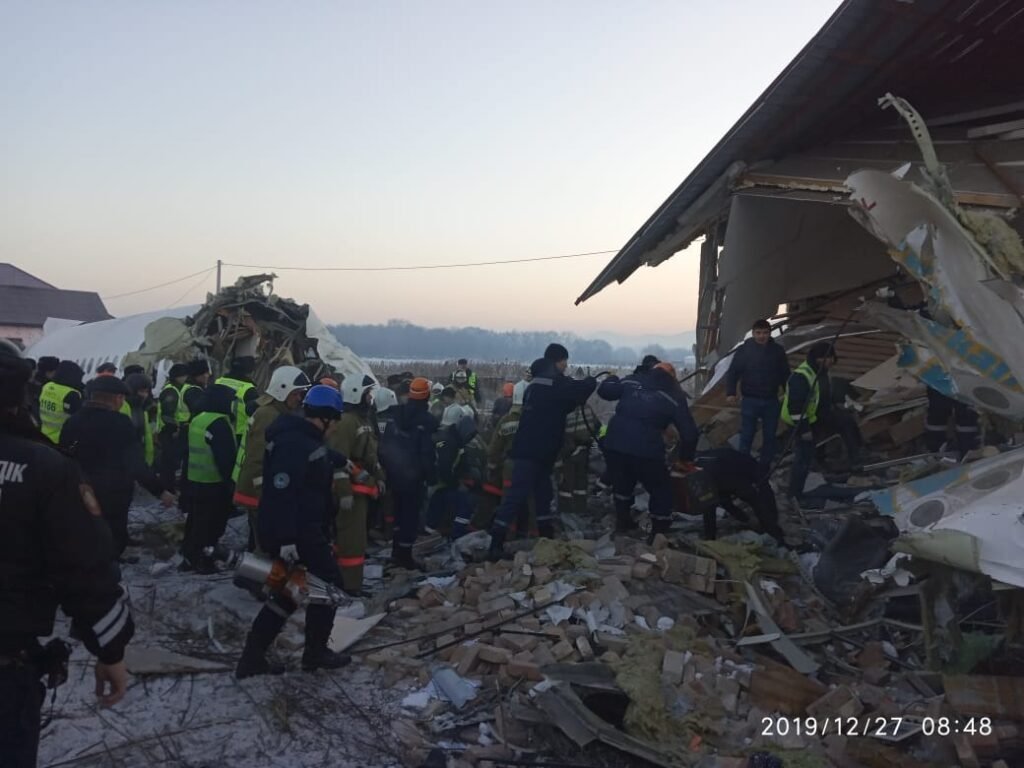
The first wave of online criticism focused on how long the investigation dragged on. Many users wondered why investigators sent so many requests abroad when they knew responses would take months, because approvals at various levels take a long time.
Users noted that investigations of other air crashes usually took two, at most three, years — so why did this one take longer? We believe the delay was precisely due to those approvals, the large number of expert examinations ordered in the case, and the questioning of dozens of witnesses and victims.
The second wave of public anger concerned the uncertainty over who should compensate the victims. Bek Air ceased operations in April 2020 after its air-operator and carrier certificates were revoked. Former head Nurlan Zhumasultanov now denies any responsibility for the company, although many media outlets recall his words from five years ago — that he was ready to “go to jail for his pilots” if they were found guilty in court.
But the airline has no legal successor, and someone still has to pay.
The victims filed civil lawsuits seeking compensation for damages. Some demanded 20 million tenge, while others requested 100 million tenge. The prosecutor asked the court to grant the claims and to seize assets belonging to both the company and Zhumasultanov personally.
The court only partially granted the request, ruling that there was no evidence Zhumasultanov had acquired his apartments, land, or commercial property illegally. Only the airline’s assets were to be seized.
Once this became public, social-media users were outraged, believing the former head of the company should also bear personal responsibility.

The third wave of criticism was about how little the media covered the trial. Many users couldn’t understand why journalists produced so few reports, even though the hearings were open. Some even speculated that reporters were deliberately being restricted from attending.
In reality, the explanation was far more mundane. Although the process was indeed declared open, journalists were only admitted after the third or fourth session had already taken place. They were then asked to follow the hearings via Zoom so as not to distract the court or the participants. The problem was that the audio quality was terrible — it was often nearly impossible to make out what witnesses were saying.
It turns out that microphones in Kazakhstani courtrooms are not connected to speakers; they are used only for official audio and video recordings. The only clear sound came from the webcam microphone, which is why online testimonies were audible, while in-person statements from the courtroom were not. Even the video quality was poor — at best, journalists could take a general shot of the main participants.
Some reporters initially attended in person but quickly lost interest after one incident. During one of the early sessions, Judge Dastan Almagambetov expelled a camera crew because the operator entered and exited the courtroom without his permission, calling it disrespectful.

After that, the judge announced a three-week recess, and many journalists moved on to other major trials. When hearings resumed, they became more frequent, but only a handful of reporters continued covering the case. Everyone was waiting for the closing arguments and the verdict.
They weren’t wrong — it was during the final arguments that explosive statements emerged, turning the courtroom into a scene of revelations fit for the front page.
Before getting to those, however, let’s recall the prosecution’s position to better understand the heart of the case.
According to the prosecutors, responsibility for the passengers’ deaths rested entirely with the two pilots, Marat Muratbayev and Mirzhan Muldakulov. They were accused of 11 serious violations of flight-safety rules, including improper preflight inspection and inadequate anti-icing treatment.
Investigators established that on December 25, 2019, the Fokker 100 aircraft had returned from a flight between Atyrau and Almaty. It remained parked in the open for more than a day and froze during that time. Before departing for the capital, the crew should have carried out a more thorough inspection to ensure the aircraft’s safety.
There was fog, high humidity, and subzero temperatures. These factors objectively led to the formation of snow and ice deposits on the wings and other critical parts of the aircraft. Knowing these conditions, the captain should have conducted a full anti-icing treatment of the plane, but instead, he treated only the stabilizer. In doing so, he violated the fundamental ‘clean aircraft’ principle, said prosecutor Aidos Polmanov.
In his view, indirect blame for the crash also lay with Bek Air’s management, who allegedly pressured pilots to economize on de-icing and cleaning requests submitted to the airport’s ground services — procedures that cost the airline significant sums.
Moreover, the company’s executives were said to have neglected flight-crew training. For that reason, the prosecutor again asked the court to order Bek Air to compensate the victims.
The court left that issue open.
The total amount of civil claims filed by the victims was around five billion tenge, of which 90 million tenge accounted for property damage. When it is impossible to calculate the exact amount of a civil claim without delaying the criminal trial, the court refers the question of compensation to the civil courts. Plaintiffs filing civil claims in connection with a criminal case are exempt from paying state duties, said Judge Almagambetov.
This means the victims must first wait for the appellate court’s decision in the criminal case. Once the Almaty City Court’s judicial panel delivers its ruling, the verdict will take legal effect.
Only then can the victims file separate civil lawsuits seeking compensation. This process will take time, as any payment will depend on the sale of Bek Air’s frozen assets.
Criminal Negligence
Returning to the prosecution’s position, the prosecutors did not question the pilots’ professional qualifications.
However, they repeatedly emphasized that co-pilot Muldakulov was not certified to operate under instrument flight rules or to fly multi-engine aircraft such as the Fokker 100.
Both the captain and the co-pilot were highly skilled professionals. They were required to act strictly in accordance with procedure, yet they knowingly chose to take off despite clear risks and violations of standard protocols. This demonstrates gross negligence that resulted in the deaths of 13 people and injuries to 53 others, the prosecutor said.
Not all representatives of the victims’ families agreed with the prosecution. In most cases, victims’ lawyers tend to side with prosecutors, often sitting together in court. This time was different.
Orda.kz reporters observed that the victims’ representatives, Sergey Derzhavets and Nurlan Khalikov, agreed almost entirely with the defense attorney for the deceased pilots, Beibit Kendirbayev — they even sat beside him in the courtroom.

Throughout the entire trial, the defense attorney insisted that the pilots were innocent. He argued that both the captain and co-pilot did everything possible to save their passengers but were unable to prevent the tragedy due to circumstances beyond their control. Kendirbayev systematically dismantled the prosecution’s 11 allegations against Muratbayev and Muldakulov.
In his view, if anyone had been negligent, it was the airport staff. They not only mixed up the types of anti-icing fluid but also applied it incorrectly.
As a result, the plane’s wings froze, causing the loss of lift during takeoff and the subsequent crash.
I asked myself: what would have happened if the Fokker 100 had not undergone anti-icing at all? That morning, five other aircraft were not treated, yet all of them took off and landed safely. I can only conclude that nothing would have happened to the Fokker either, said Kendirbayev.
The case files note that on that fateful morning in 2019, 10 other flights were scheduled to depart from Almaty Airport. Half of the aircraft underwent anti-icing treatment; the other half did not.
All 10 flights, however, departed and landed safely. This left many observers wondering why only Muratbayev and Muldakulov’s plane ended in disaster.

The defense argued that the true culprit of the tragedy was the owner of the private house that the plane crashed into. According to the lawyer, the man had built the house illegally, creating an artificial obstacle in the path of the stricken aircraft.
If the area had been clear, the aircraft would have stopped without breaking apart. But it collided with a house built by Kalibek Rishat just nine meters outside the airport fence. The sanitary protection zone extends 500 meters, and construction of any kind — including residential housing — is strictly prohibited there, the attorney stated.
On February 27, 2025, the pre-trial investigation against Kalibek Rishat was closed due to the statute of limitations, which does not qualify as exoneration.
It can be said with certainty that responsibility for the deaths of 12 people and injuries to 47 lies with Kalibek Rishat. He has fully admitted his guilt. So how can blame for the crash be placed on the pilots? Muldakulov and Muratbayev are victims of Rishat’s actions, just like the other passengers who were killed or injured, the lawyer insisted.
During his closing statement, the defense attorney delivered a scathing critique of the investigative authorities, arguing that the quality of the case suffered from a severe shortage of qualified personnel within the transport police.
The issue of lacking competent investigators — those who at least understand how to handle cases of this category — has repeatedly been raised at the level of the main transport prosecutor’s office. At a May 2025 meeting, the head of that office himself acknowledged the poor quality of investigations, including this one. Moreover, during interrogations, prosecutors posed leading questions to victims, shaping a false impression among them and the journalists attending the trial, said Kendirbayev.
While the defense blamed airport ground staff for mishandling the anti-icing procedure, one of the victims’ lawyers, Sergey Derzhavets, went even further.
He openly accused the airport’s management of collusion with investigators.
I intend to prove that the people on trial are not the ones truly responsible — the real defendant is sitting among the victims. That defendant is Almaty International Airport JSC. There is reason to believe that this organization coordinated its actions with the pre-trial investigation from the very beginning. The investigators certainly knew that my clients and the other victims would never receive a single tenge from the flight crew or from the airline, which has been defunct for almost six years. Meanwhile, compensation of four billion tenge for all the victims would be an entirely realistic amount for the airport. Yet certain individuals made sure that such compensation would never be allowed under any circumstances, said Derzhavets.
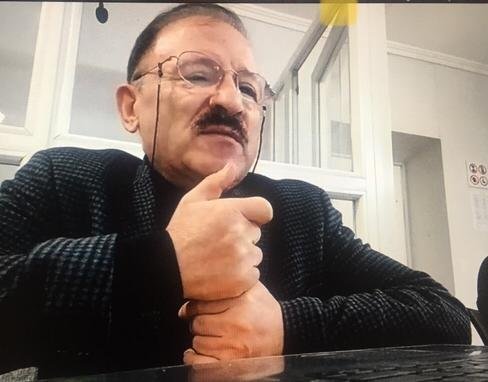
During the closing arguments, Derzhavets and Khalikov meticulously dissected the quality of the investigative work. It was striking to watch how, in the process, they threw barbed criticisms at the prosecutors — despite both men having previously worked in the prosecution service themselves. They made no attempt to hide this fact; in fact, they emphasized it repeatedly when comparing the professionalism of the “old guard” of prosecutors to that of the younger generation now handling such cases.
Derzhavets fully supported the defense’s position that the accusations against the deceased pilots and their employer were unfounded.
The prosecution’s theory about a policy of saving money on anti-icing fluid is absurd and groundless. The pilots were not suicidal — they had no financial interest in such savings, since they were not the company’s beneficiaries. The only entity that profited from the anti-icing procedure was the airport itself, because it was the one being paid for the service. In fact, the stabilizer was treated only with water because the operator had diluted the fluid incorrectly. The airport refuses to acknowledge this, said the lawyer.
According to him, the fluid froze between the elevator and the stabilizer, which caused a loss of lift. As the Fokker 100 accelerated for takeoff, the aircraft began to oscillate. The unstable position was worsened when it entered the wake turbulence left by a large aircraft that had taken off earlier.
Caught in this powerful vortex, the Fokker 100, the lawyer argued, went into a stall.
This raises the question: why didn’t investigators seriously consider the wake turbulence scenario? Why did they insist on ice accumulation on the wings as the main cause? Derzhavets explained that the lead investigator had pressured an expert, identified only as “K.,” who eventually gave in.
For ethical reasons, Orda.kz is not disclosing the names of the experts whose work the lawyers so harshly criticized.
The trace expert had no specialization in physics, aerodynamics, or aeromechanics, yet he issued a formal conclusion. Why? Because the transport police had opened a criminal case against him for providing a knowingly false expert opinion. Under psychological pressure from the investigator, he then claimed that his initial examination had been done before that case was launched. In his new report, he asserted that the wake vortex had passed clear of the Fokker 100, said the lawyer.
At one of the court sessions attended by Orda.kz reporters, the expert “K.” himself took the stand. He spoke in detail and in clear terms about how he had examined the wake turbulence left by the Airbus 221 and concluded that it did not affect the Fokker 100’s flight safety.
However, when defense lawyers questioned him about his own criminal case for issuing a “false” report, the expert refused to comment.
After that, the victims’ representative sought to dismantle the findings of other expert reports — for instance, the flight-psychological assessment dated August 12, 2021, signed by experts identified as “Kh.” and “Ya.” That posthumous analysis portrayed captain Marat Muratbayev in an unflattering light.
The experts attributed to him several dangerous personality traits — an inflated self-esteem, a need for self-assertion, a tendency toward bravado, and a loss of fear — arguing that these characteristics led him to grossly violate flight safety rules and ultimately cost 13 lives, including his own.
Defense attorney Sergei Derzhavets rejected the psychologists’ conclusions outright:
No special expertise in flight psychology is required here. Expert ‘Ya.’ is a psychologist by education, but he has no practical or scientific knowledge of aircraft operation or technical flight procedures whatsoever. Expert ‘Kh.’ is also unqualified, as he has never worked as a pilot. Neither of them possessed the necessary expertise to answer the investigator’s questions. Their conclusions are therefore inadmissible and unreliable as evidence in this case.
Earlier in the trial, the prosecutor noted that several medications were found among Captain Muratbayev’s personal belongings. Traces of drugs used to reduce blood pressure were detected in his blood, and prosecutors claimed these might have affected his concentration and mental flexibility.
Derzhavets countered:
These so-called experts have no medical education. They know nothing about cognitive flexibility. Their conclusions are speculative and show signs of being deliberately false. They claimed that the crew incorrectly chose takeoff speed and flap angle, saying that under icing conditions they should have used full thrust. Two people who understand nothing about aircraft piloting, apparently suffering from delusions of grandeur and inspired by the mere fact of being involved in the investigation of the air incident, lost their sense of reality and became convinced of their impunity. They imagined themselves to be experienced pilots, invented the aircraft icing condition, and issued a knowingly false conclusion in the field of piloting techniques.
The lawyer tore apart the so-called flight-psychological report, exposing its inconsistencies:
On page 63 of the report, they cite the supposed negative effect of medications found in Muratbayev’s luggage as a contributing cause of the crash. That alone amounts to giving a false expert opinion. The investigator had a direct interest in spreading false information about the captain — despite knowing from the testimony of Muratbayev’s relative that the medicine belonged to her personally. The investigation ignored the fact that the captain had passed a medical check-up just one day earlier. Moreover, the postmortem toxicology report found no trace of any drugs that could have affected his performance.
So why, then, did these psychologists produce such a questionable report? According to Derzhavets, the answer lies in the tainted reputation of expert “Kh.”
Kh. should never have been involved in this case, because he had already been exposed in court for giving a false expert opinion in a previous aviation case. On October 30, 2023, the Almaty Regional Court acquitted the president of East Wing Airlines, who had faced the same Article 344 charges as our deceased pilots. The prosecution in that case relied heavily on expert Kh.’s report — which the court ultimately found invalid. The judges concluded that Kh. was not qualified to participate as an expert at all, Derzhavets said.
Derzhavets also urged the court to deem several other expert reports inadmissible and unreliable as evidence.
Among them were the phototechnical examination, which allegedly detected snow and ice deposits on the aircraft’s windows, and the transport-trace analysis, which established the plane’s speed at the time of the crash.
In his view, the investigator had posed improper questions to unqualified specialists and even commissioned types of forensic examinations that are not formally recognized by the Ministry of Justice.
A total of 57 expert analyses were ordered in this case, excluding the standard medical examinations. Meanwhile, the official state registry of forensic studies lists only 36 categories. It gives the impression that some of these so-called examinations were simply invented by the investigator, and others were conducted pointlessly. For instance, the investigator’s decree refers to a ‘meteorological examination,’ which does not exist as a recognized type. Nor do such categories as ‘aviation accident investigation,’ ‘incident analysis,’ or ‘flight operation of an aircraft’ exist in law. Six out of seven of these examinations were carried out improperly. This alone should warrant an internal review of the investigative team, the lawyer argued.
According to him, civil liability for the deaths of passengers and crew lies not with the pilots, but with three other parties: the owner of the ill-fated house that the plane struck, the management of Almaty Airport, and the Civil Aviation Committee of the Ministry of Transport, which certified the airport’s compliance.
Many of the victims stated that they sustained bodily injuries after the aircraft collided with the house. Only two victims suggested that they suffered cervical vertebra fractures during the aircraft’s emergency braking. There is no causal link between the actions of the crew and the resulting consequences, including the deaths of 12 people. This link is evident between the inaction of the airport management and the consequences that followed. The collision of the aircraft with the house occurred through the fault of those who illegally built it and those who allowed it to happen,
Derzhavets stated.
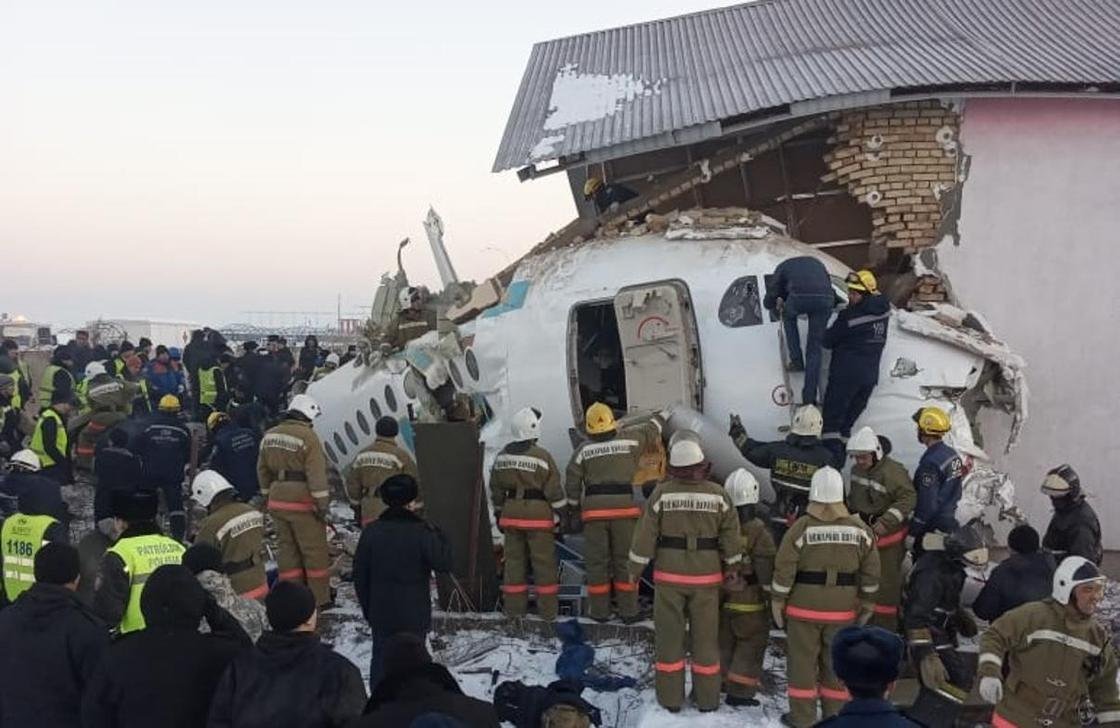
To be fair, the airport’s legal representative also filed a civil claim against the airline during the proceedings, seeking compensation for damage to its lighting and fencing systems. The property loss was estimated at 22,895,000 tenge. The representative added that the airport only provides services upon request from airlines: If Bek Air ordered de-icing but did not order a quality-control inspection, the airport bears no responsibility.
The widows of the deceased pilots firmly maintained their husbands’ innocence. They insisted that the men had done everything in their power to minimize the risks in those final critical moments. Both women also spoke in court about what they described as psychological pressure from investigators.
For example, Zauresh Muldakulova said that investigators interrogated her husband, co-pilot Mirzhan Muldakulov, almost immediately after he had undergone surgery.
He was in serious condition, but the investigator didn’t care. I want this to be investigated because it was essentially torture. I believe the investigator finished him off. He wouldn’t let my husband recover after the operation and wouldn’t allow us to see him in the hospital. Only after doctors intervened did he stop the interrogation. In 2024, that same investigator pressured us to accept the accusations against our husbands. He threatened us. People were constantly hanging around our home, making us feel unsafe. We just want justice. We want our husbands to be acquitted and left in peace, she said tearfully.
During the hearings, the court also played a video recording of Muldakulov’s hospital interrogation, which showed him answering questions while visibly weak and bedridden.
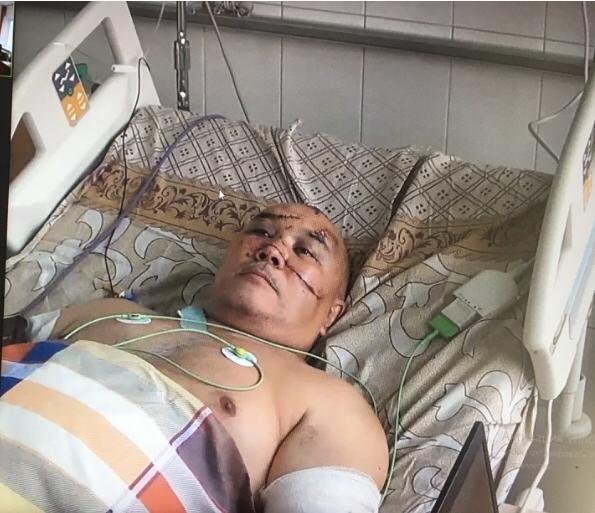
The widow of Captain Marat Muratbayev could not contain her emotions either. Speaking directly to the prosecutor in the courtroom, she voiced what many families of pilots involved in past air disasters in Kazakhstan have long felt:
Has there ever been a single case where pilots were acquitted? In Kazakhstan, pilots are always found guilty. You just keep blaming and pressuring them — and us. Pilots are always the scapegoats because they’re dead and can’t defend themselves. But we, their wives, can stand up for them. We also suffered, we lost our loved ones, and we still can’t recover. It’s still painful for me. You’ve latched onto the pilots and nothing else. I even received phone calls — people offered me large sums of money to sign some papers. I have recordings of this!
The judge reprimanded her for confronting the prosecutor directly and reminded her to show respect to the court. He then withdrew to the deliberation room.
After a pause, Judge Dastan Almagambetov returned and delivered the verdict.
The Court finds Marat Muratbayev and Mirzhan Muldakulov guilty of committing a criminal offense under Part 3 of Article 344 of the Criminal Code of the Republic of Kazakhstan. No sentence is imposed due to their death. Procedural expenses in the amount of 1,757,770 tenge shall be borne by the state. The victims are recognized as having the right to seek satisfaction of their civil claims, and the determination of the amount of such claims is referred to civil court proceedings. This verdict may be appealed, or a motion may be filed by the prosecutor, within fifteen days to the Almaty City Court through the Turksib District Court of Almaty from the date of the pronouncement of the verdict.
The judge explained his reasoning as follows:
The flight crew committed serious violations of flight safety requirements in conditions of ground icing, which led to the crash and loss of life. During the pre-flight inspection, they failed to detect snow and ice deposits on the wings and did not order a full de-icing procedure. The pilots also violated takeoff configuration and piloting technique, exceeded a pitch angle of 10 degrees, and deviated from the assigned takeoff course. The crew should have aborted takeoff but did not.
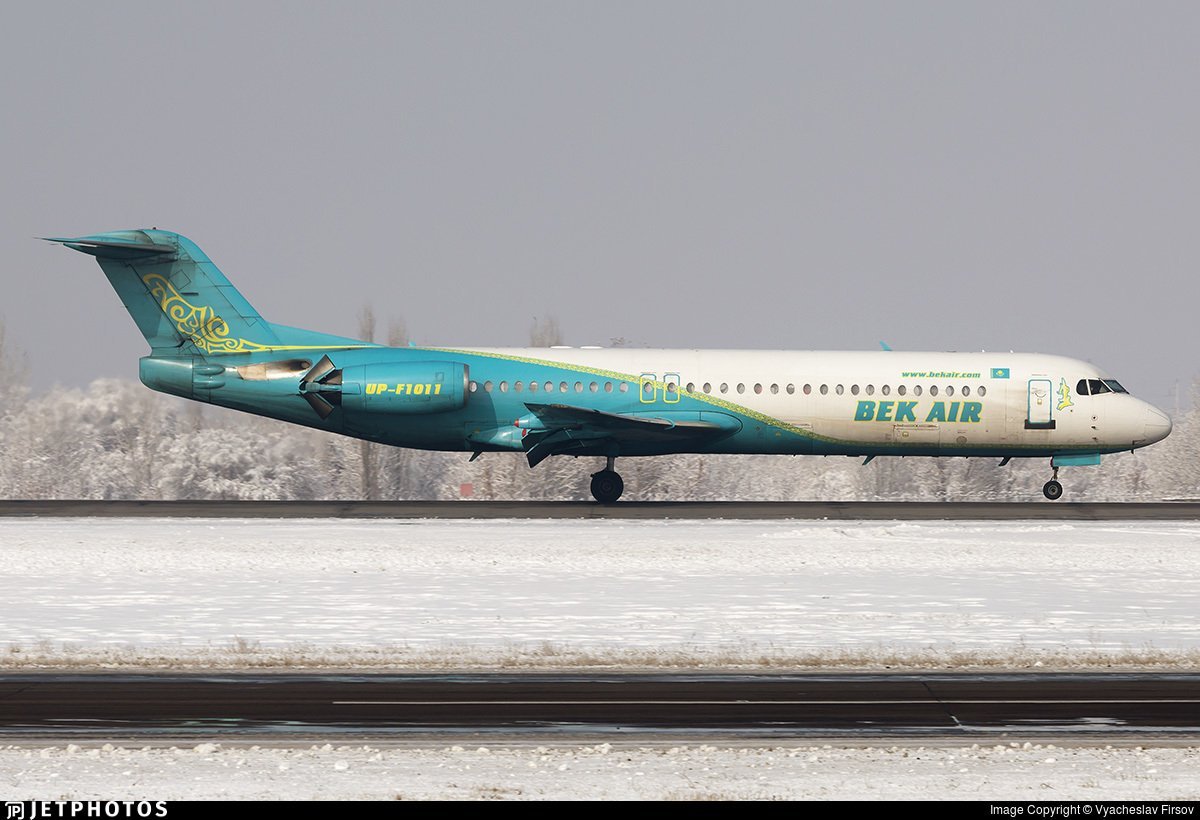
The court concluded that the cause of the crash was the presence of snow and ice deposits on the aircraft’s wings.
The defense’s claim that airport employees allegedly mixed up the fluids during the de-icing procedure was thoroughly investigated. The court found no evidence to confirm these circumstances. All motions by the defense and the representatives of the victims to exclude expert reports and specialist conclusions allegedly obtained in violation of the Code of Criminal Procedure were reviewed by the court and given proper legal assessment. The arguments of the defense were found to be unfounded and were rejected.
The court thus held both Muratbayev and Muldakulov criminally liable but clarified that, under Article 178, Part 10 of the Criminal Procedure Code, their heirs would not bear any financial responsibility.
We will inform readers of the decision of the Almaty City Court’s appellate panel. Yet even then, it would be premature to put a final period in the Bek Air crash case. There still remains the cassation stage in the Supreme Court.
In our view, a true conclusion can only be drawn once all families of the victims and survivors have received full compensation. Only then will it become clear who bears the civil liability for this tragic disaster, since no one has been held criminally responsible.
Original Author: Zhanar Kusanova
Latest news
- The Delivery of 51 Stadler Passenger Coaches Has Been Delayed
- Kazakhstan Returns Nearly 1,000 Citizens From the Middle East
- Damaged Baikonur Launch Pad Facility Restored After 2025 Collapse
- A Rare Black Melanist Wolf Was Shot in Eastern Kazakhstan
- Kazakhstan Maintains Neutral Stance on Middle East Escalation
- Kazakh MFA: Citizens Evacuated from the Middle East via Oman and Saudi Arabia
- Kazakhstan to Spend 4.6 Trillion Tenge on Road Projects Through 2029
- Central Asia Competes for the Skies: Why Kazakhstan Risks Falling Behind Uzbekistan on Jet Fuel
- The War in Iran Opens a Window of Opportunity for Kazakhstan’s Oil Sector, Analysts Say
- Iran Conflict Escalates Beyond the Gulf: What Kazakh Experts Say About Risks for Central Asia and Kazakhstan
- Kazakhstan Prepares Possible Evacuation of Its Citizens From Iran
- LRT in Astana Is Reaching the Finish Line: The Launch Is Expected in the Coming Months
- Kazakhstan Ready to Help the UAE Amid Escalation in the Region
- Tokayev Discusses Middle East Escalation With Qatar’s Emir
- Airlines Ready to Bring Kazakhstanis Home From the Middle East
- Tokayev Sends Support Messages to Gulf Leaders Amid Regional Escalation
- Kazakhstan Bans Its Airlines From Flying Over Several Middle East Countries
- Astana Strengthens Security Measures Amid Escalation Around Iran
- Tokayev Meets U.S. Ambassador Stufft, Discusses Board of Peace Cooperation
- Mangystau Launches AI-Assisted School Monitoring to Prevent Teen Suicidal Behavior

